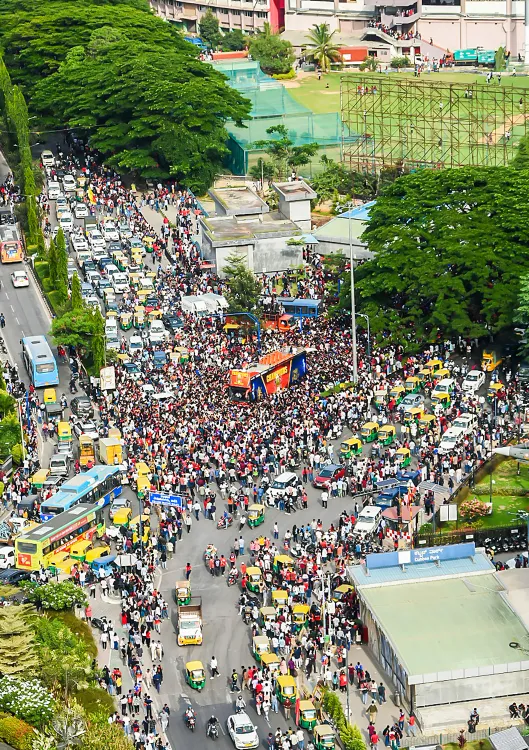Is the Karnataka Government Introducing New Crowd Control Laws Following the Recent Stampede Tragedy?

Synopsis
Key Takeaways
- Karnataka proposes new legislation for crowd control.
- Bill aims to prevent tragedies at mass gatherings.
- Penalties include jail time and hefty fines.
- Traditional events are exempt from this law.
- Event planners face strict responsibilities and penalties.
Bengaluru, June 19 (NationPress) Following the devastating stampede during the RCB victory celebrations that resulted in the loss of 11 lives in Bengaluru on June 4, the Karnataka government has unveiled a new legislative proposal: the Karnataka Crowd Control (Managing Crowd at Events and Venues of Mass Gathering) Bill, 2025. This bill includes severe penalties, such as jail time and monetary fines for non-compliance.
The draft legislation, discussed in a recent cabinet meeting, aims to oversee large gatherings and avert future tragedies.
It suggests rigorous penalties, including imprisonment for up to 3 years and fines reaching Rs 5 lakh for those who breach the regulations.
However, the legislation will exclude traditional and religious events like fairs, chariot festivals, palanquin processions, boat festivals (Teppotsava), Urs events, or any religious activities associated with any faith, caste, or community.
This bill is anticipated to receive approval in the forthcoming cabinet meeting.
The objectives of the bill, currently in circulation, state: 'A Bill to efficiently manage and control crowds at sponsored events and venues of mass gathering related to political rallies, jatras, conferences, etc., in the state of Karnataka.'
The act includes punitive measures for event organizers who gather crowds for commercial purposes, such as sports or circus events. 'If the event organizer fails to apply for permission before hosting the event or fails to manage the crowd effectively, leading to injury or death, they shall face imprisonment of up to three years, a fine of up to Rs 5 lakh, or both,' the proposed Act stipulates.
'An offence under this Act shall be non-cognisable and non-bailable and shall be tried by a first-class magistrate,' the proposed Act asserts.
Additionally, under the sub-title 'Offence of event planners', it clarifies that it applies to 'any individual who deliberately violates the provisions of this act or its rules; who does not obtain prior permission from the jurisdictional police station before conducting the event.'
'Anyone conducting an event at a venue that results in death or injury to participants, or who causes a stampede, will be deemed to have committed an offence as an event planner.'









